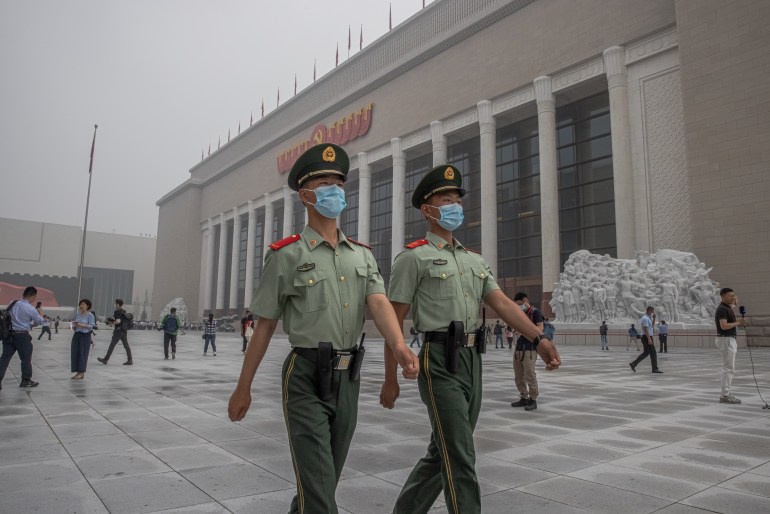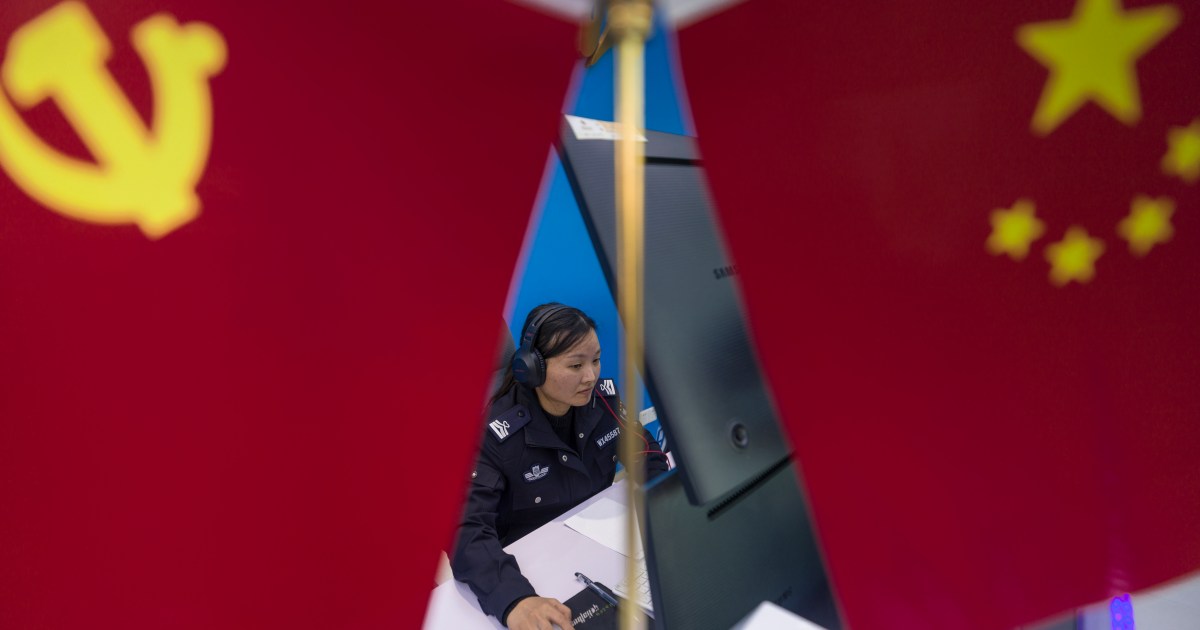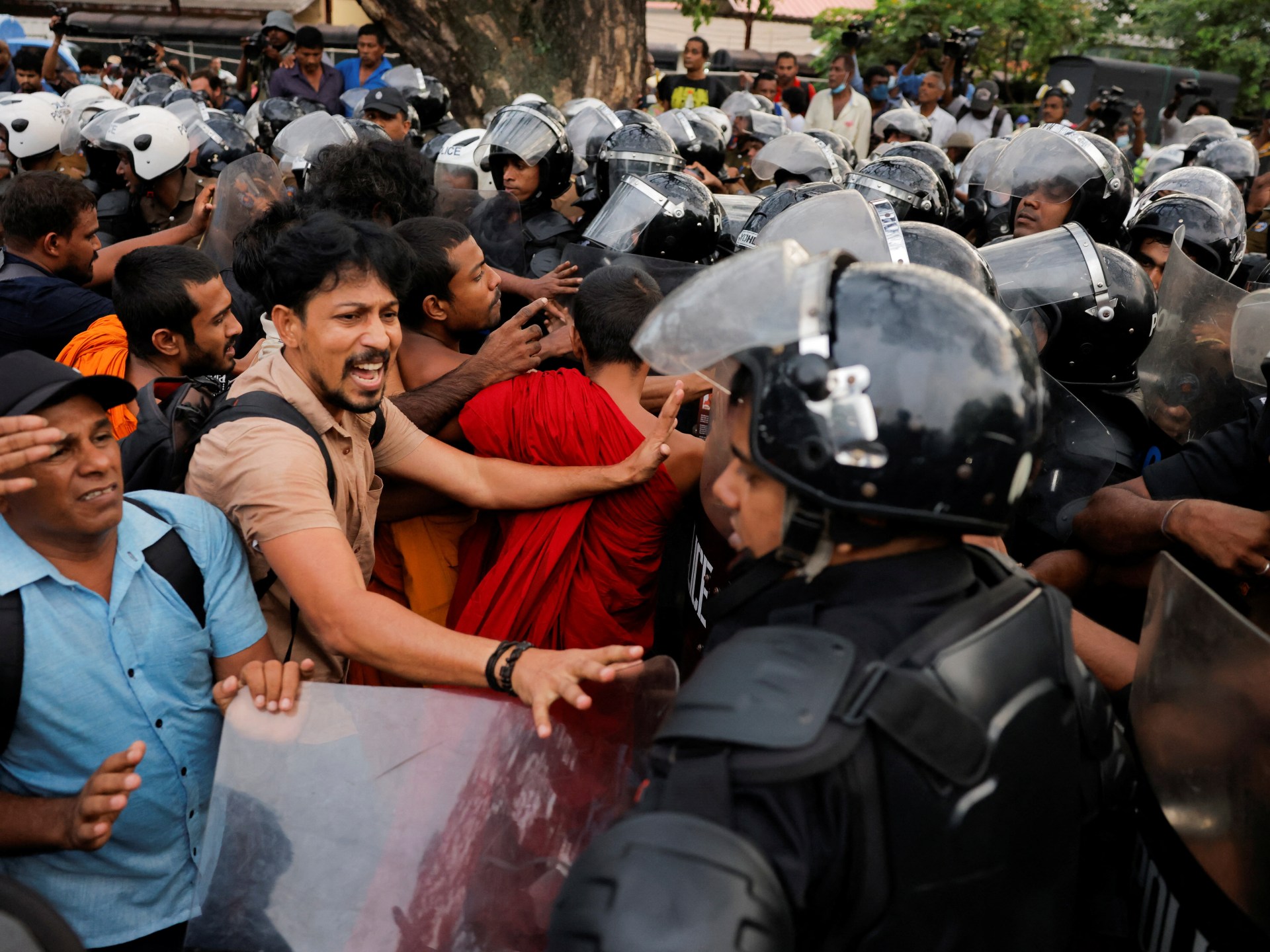‘Picking quarrels’: China critics overseas at increasing risk | Human Rights News
Wang Jingyou was living in Turkey last year when he found that the 7,000 kilometres (4350 miles) between him and his homeland was no obstacle to an offended Chinese state.
Wang had left China after voicing his support on TikTok for Hong Kong’s democracy protests, but after he questioned the outcome of an Indian-Chinese border clash on social media in February 2021, mainland authorities sprung into action.
Within half an hour of the post, police in his hometown of Chongqing had visited his parents. Then they detained them.
They said Wang, who is in his early twenties, had “slandered and belittled heroes” while also “picking quarrels”, two charges that in China are often used to silence government critics.
“I’m not in China, I’m in Europe,” Wang told Al Jazeera. “I just said something. I didn’t do anything and they put my (name) on a wanted (list) in the government website, in the official media, also in the Ministry of Foreign Affairs too.”
Wang soon found himself on a months-long journey of harassment that saw him detained while flying through Dubai in April 2021 and threatened with deportation to China – which he narrowly avoided when his story became international news. Wang and his fiancée travelled through several countries before they eventually claimed asylum in the Netherlands, but not before China had cancelled their passports.
“We are in the Netherlands, but they also have many, many ways to find us,” Wang said, alleging that even with a Dutch phone number he continues to receive threatening text messages and phone calls.
 Safeguard Defenders says more than 10,000 alleged”fugitives” have been pressured into returning to China since 2014 [File: Roman Pilipey/EPA]
Safeguard Defenders says more than 10,000 alleged”fugitives” have been pressured into returning to China since 2014 [File: Roman Pilipey/EPA]Wang’s story may sound dramatic, but it is far from extraordinary in Xi Jinping’s China, according to human rights watchdog Safeguard Defenders, which released a new report on Tuesday on the country’s widespread practice of “involuntary returns”. Such pressure has been used on more than 10,000 alleged Chinese “fugitives” who since 2014 have been coerced into returning from abroad to face detention or prosecution for alleged corruption and other crimes, the report said citing official data.
Methods to “encourage” return can vary from harassment and coercion of friends and family online, to approaching a citizen overseas through Chinese or domestic security agents, and more “irregular” methods like state-sponsored kidnapping, Safeguard Defenders said. In some cases, authorities may freeze family assets or even threaten to remove children from families.
‘I wrote something’
Kidnappings typically occur in countries with a strong relationship with China, like Thailand or Myanmar, but Safeguard Defenders said as many as 10 people may have been kidnapped from among Australia’s large Chinese diaspora in recent years.
The list also includes the 2015 disappearance of five staff members associated with a Hong Kong book store specialising in books banned in China. One bookseller, Gui Minhai, disappeared in Thailand while the others went missing on trips to China, only to later emerge in Chinese detention
China has also made use of Interpol “red notices“, which flag a citizen to police and immigration departments around the world so they can be deported back home, where they face a 99 percent conviction rate if prosecuted, the watchdog said.
“Involuntary returns” have become increasingly common since China first launched an ambitious anti-corruption campaign in 2012, followed by Operation Foxhunt in 2014 to repatriate Communist Party officials facing corruption charges who have fled abroad, and the broader Operation Sky Net in 2015 to target money laundering.
While nominally law-enforcement based, Operation Foxhunt has been described as a “campaign to enforce political loyalty, avoid in-Party factionalism and to more generally instil Party discipline”, Safeguard Defenders said in the report.
Both campaigns have corresponded to a 700 percent jump in Chinese people seeking asylum abroad between 2012 and 2020 as China’s already limited civil and political rights have been curtailed even further under President Xi, the rights group said.
That number does not include the 88,000 Hong Kong people who applied to resettle in the UK in 2021 under a new immigration scheme, after the imposition of a national security law for the Chinese territory that Amnesty says has “decimated” freedoms and rights that Beijing had promised to respect until at least 2047.
More than 175,000 people have been officially recognised as refugees, but that has not kept Chinese authorities from orchestrating “involuntary returns” whether they are government defectors, Falun Gong practitioners, human rights defenders, political dissidents, or even ordinary citizens like Wang who have fallen afoul of increasingly strict authorities.
Wang says he was just doing what millions of other people do everyday — sharing his views on social media.
“We didn’t do anything against China,” he said. “I wrote something. I never thought they would (begin to) watch me.”




